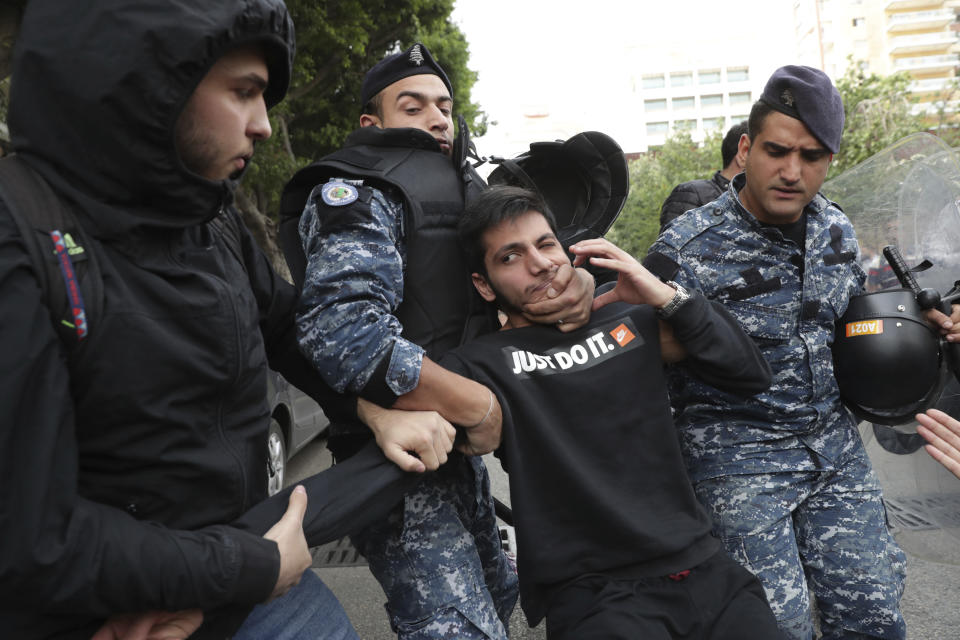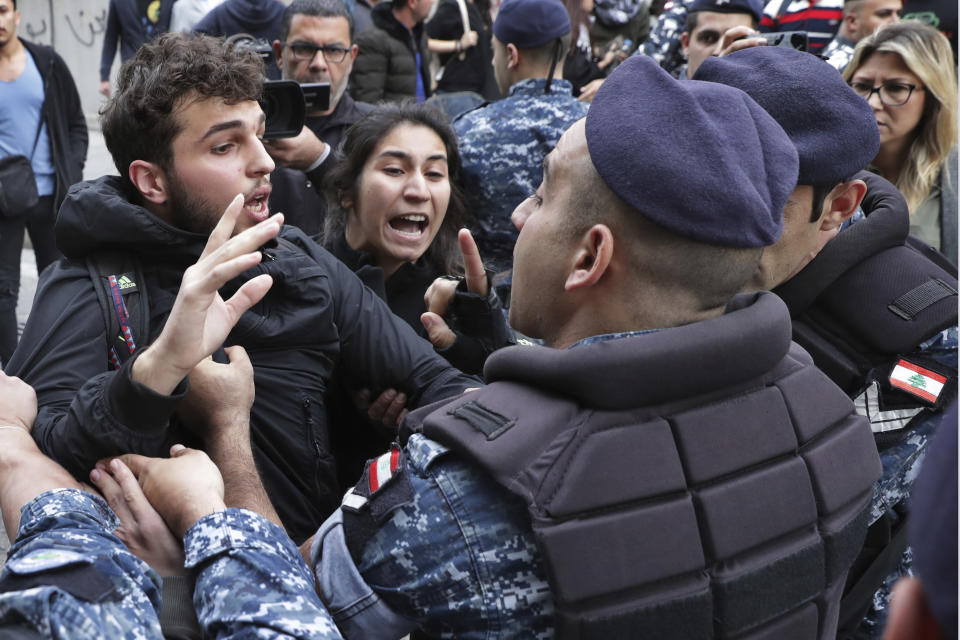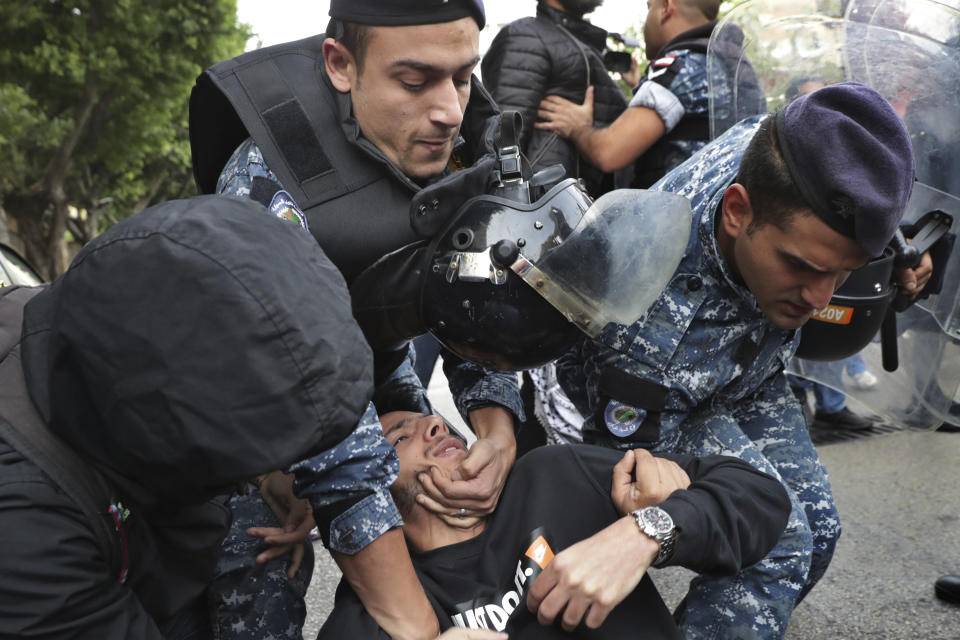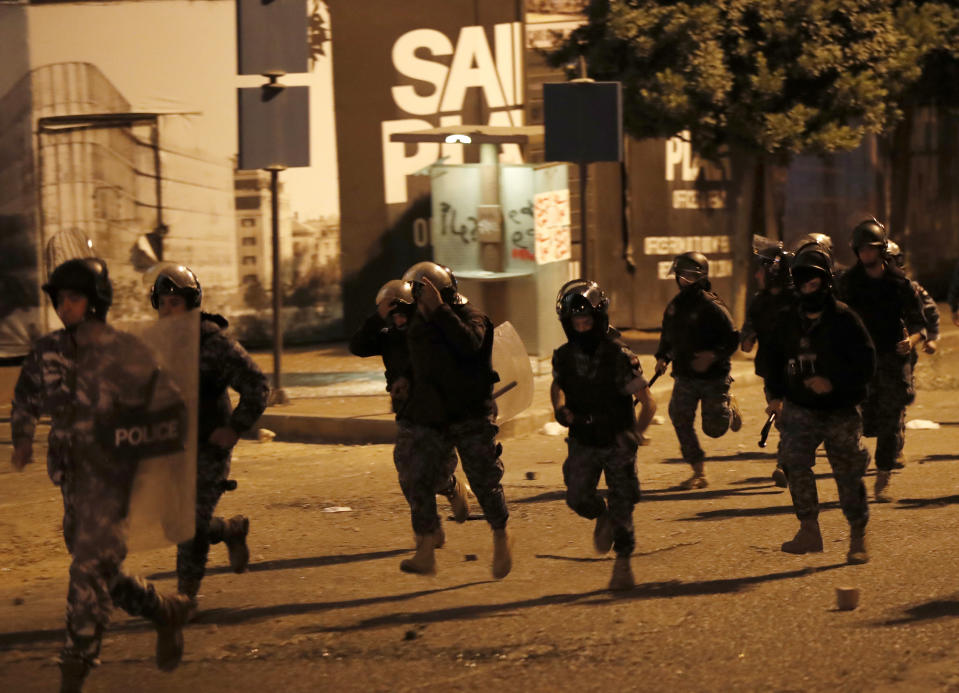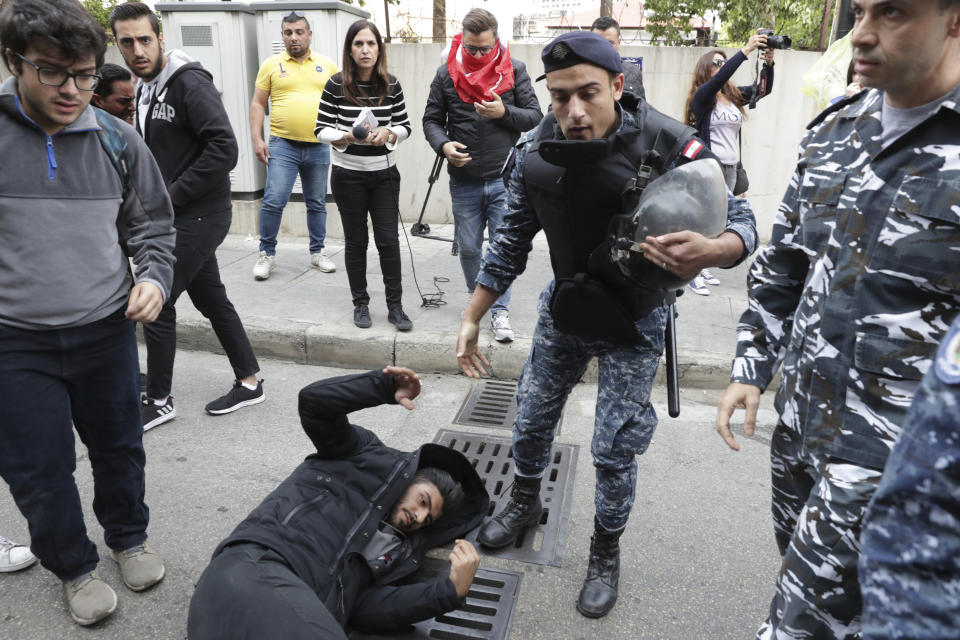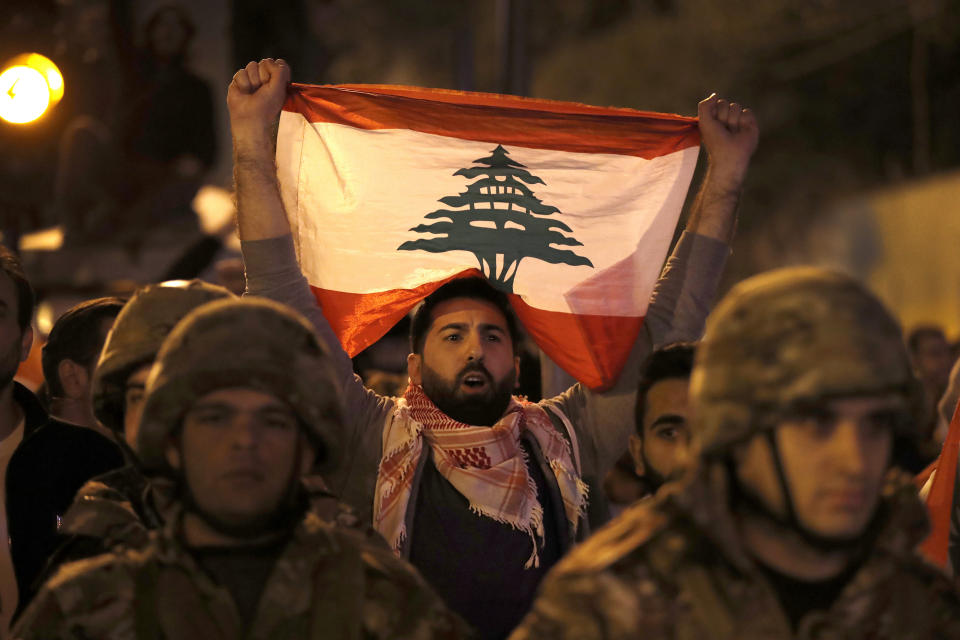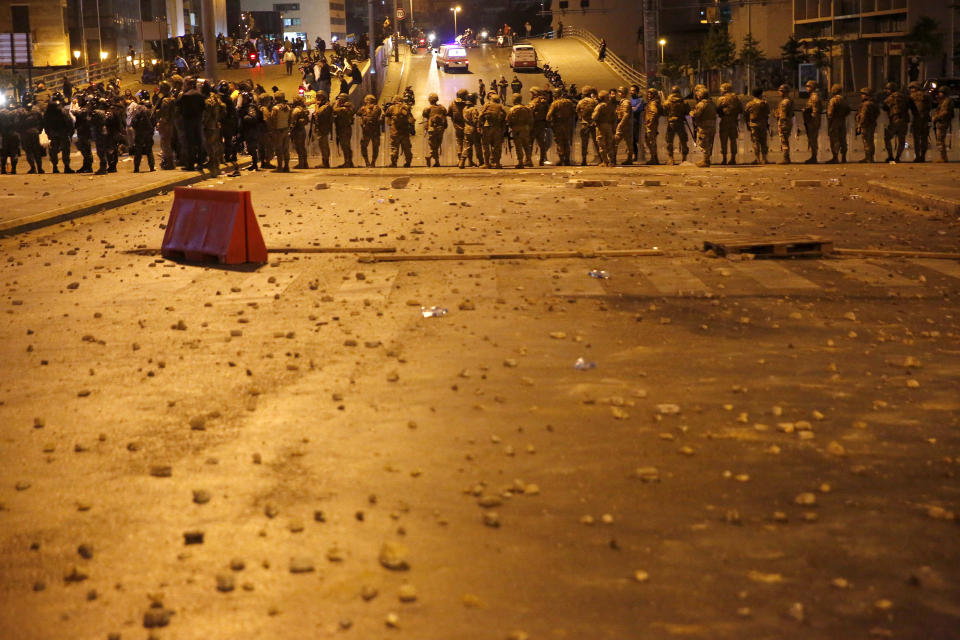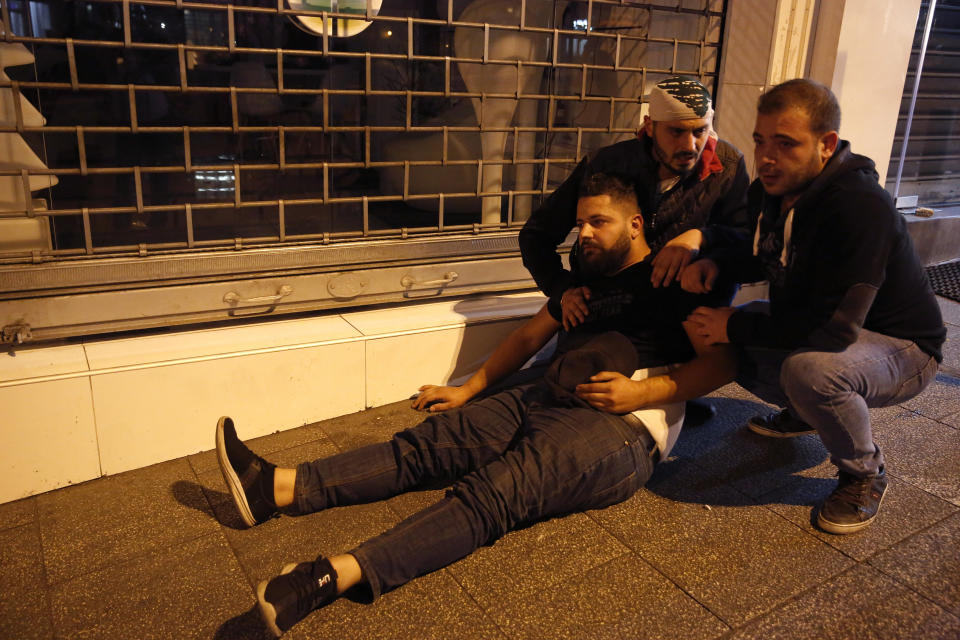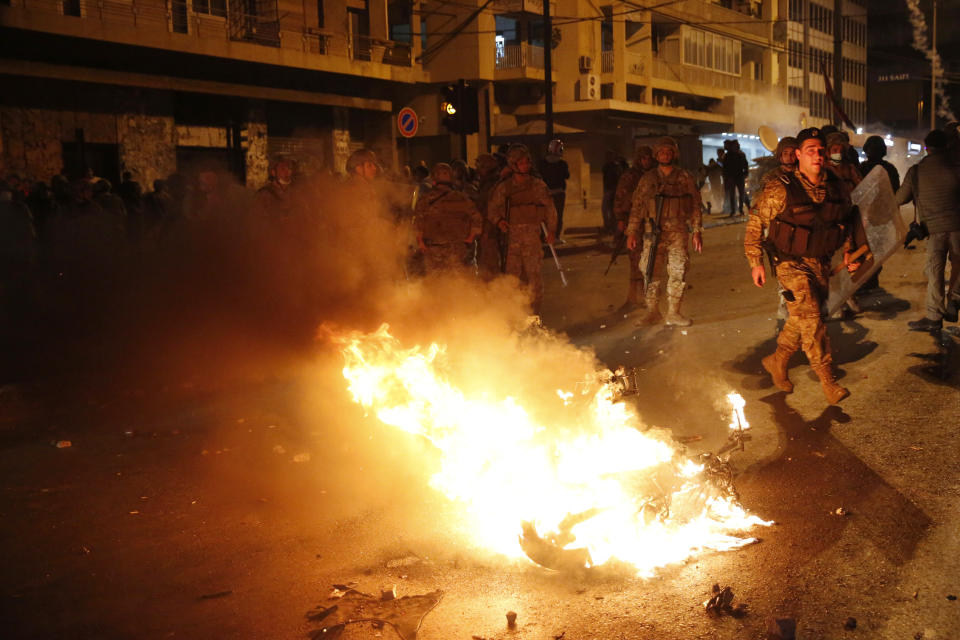Key Beirut road reopens after rival groups clash overnight
BEIRUT (AP) — A key road in the Lebanese capital reopened Monday following clashes throughout the night between rival groups, some of the worst violence since protests against the country’s ruling elite began last month.
The confrontations began Sunday evening after supporters of the country’s two main Shiite political parties, the militant Hezbollah and the Amal Movement of Parliament Speaker Nabih Berri, attacked protesters who had blocked a main Beirut thoroughfare known as the Ring Road.
The young men arrived on scooters carrying clubs and metal rods and chanting pro-Hezbollah slogans, beating up several of the protesters. Both sides then threw stones at each other for hours as security forces formed a barrier to keep them apart. The clashes lasted until early Monday morning.
Lebanon’s massive protests against corruption and mismanagement by the country’s leaders are now in their second month, but have so far remained largely peaceful, unlike in Iraq were over 340 people have been killed during similar protests as security forces use overwhelming force against demonstrators.
In Lebanon, one person has been killed by security forces during the protests, although there have been six other deaths related to the protests since the demonstrations began on Oct. 17, including two deaths Monday.
A man and his sister-in-law burnt to death inside their car after it hit metal barriers placed by protesters to block a highway in the village of Jieh, linking the capital with the country’s south. His daughter was taken to a hospital for treatment.
In Beirut, riot police beat up protesters who closed a main intersection leading to the commercial Hamra Street, forcing them to open it. Lebanese soldiers reopened highways linking Beirut with the country’s north and south as well as other roads in the eastern Bekaa Valley, which protesters had closed the previous day.
Closing roads and disrupting traffic has been a main tactic of the mostly leaderless protest movement, and the Ring Road has emerged as a flashpoint intersection.
In areas close to the Ring Road, tents that had previously been erected by the protesters were all destroyed as of Monday morning, as were some of the windshields of cars parked in the area of Riad Solh Square and the nearby Martyrs Square. Some shops had their windows smashed as well.
The Ring Road was notorious during Lebanon’s 1975-90 civil war as one of the most dangerous front lines, and at the same time a main crossing point during days of fragile cease-fires in the capital between the mostly Muslim west and the predominantly Christian east.
The protests forced the government of Prime Minister Saad Hariri to resign on Oct. 29, but politicians have since failed to agree on a new Cabinet, despite a rapidly deteriorating economic crisis.
Iran-backed Hezbollah, which was part of Hariri’s Cabinet, says the protests are being exploited by foreign powers with an agenda against the group. The group’s supporters as well as supporters of Berri, the parliament speaker, have attacked the main protest camp in central Beirut on at least two other occasions, destroying tents set up by protesters.
Hezbollah and Amal are insisting that Hariri heads the next government and that it be made of politicians and technocrats. The outgoing prime minister is insisting on heading a Cabinet that is made up only of experts whose main job will be to try get Lebanon out of its worst economic and financial crisis in three decades.
President Michel Aoun and Hariri met separately Monday with Richard Moore, the director of Britain’s Foreign and Commonwealth Office, in which they discussed the latest developments in the country. Aoun’s office said Moore expressed Britain’s commitment to help Lebanon and support the formation of a new government.
Also Monday, Berri postponed a parliament session that was scheduled for Wednesday until further notice.
